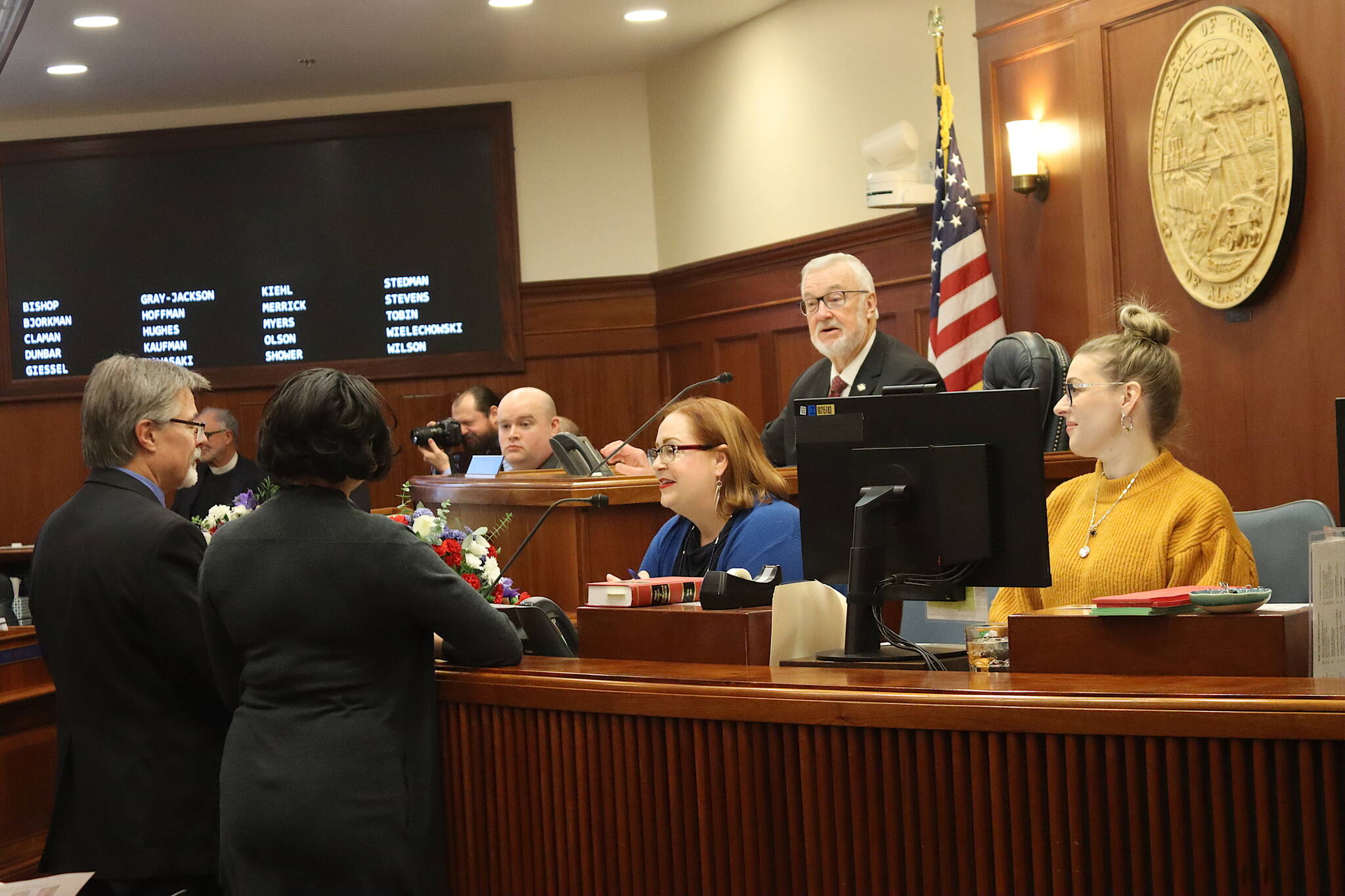Roughly $5.5 million owed to the Kenai Peninsula Borough School District and $175 million in one-time funds for Alaska’s K-12 schools are included in the Senate version of the state operating budget for next fiscal year approved Wednesday, May 1.
Public education advocates, students and staff have doggedly lobbied lawmakers for an increase to the state’s K-12 funding formula, which hasn’t changed significantly in seven years.
The document, which is under review by a conference committee of three House and three Senate legislators to resolve differences between the budgets passed by each chamber, singles out both KPBSD and the Anchorage School District as being owed money by the state from during the COVID-19 pandemic.
The U.S. Department of Education first warned the Alaska Department of Education and Early Development last December it was in danger of becoming noncompliant with requirements the state agreed to when it accepted almost $380 million from the federal government during the COVID-19 pandemic. DEED has repeatedly contested that claim.
As a condition of receiving federal money under the American Rescue Plan Act, states were required to comply with provisions intended to support school districts serving a high number of students from low-income families. The federal government says Alaska didn’t comply with those provisions and as a result owes four school districts a combined $29 million.
In addition to the roughly $9.7 million owed to KPBSD for fiscal years 2022 and 2023, the U.S. Department of Education says the state must pay $16.6 million to the Anchorage School District, $3.1 million to the Fairbanks North Star Borough School District and $204,000 to the Juneau Borough School District for those two fiscal years.
The Senate’s proposed budget only proposes partial payments of the outstanding funds owed to KPBSD and the Anchorage School District for fiscal year 2022.
The outstanding funds are not included in the House version of the state operating budget passed last month. It’s just one difference between the two versions of the document lawmakers will need to reconcile in the conference committee. Conference committees bring together lawmakers from both chambers to reconcile discrepancies between the different versions. Legislators need to approve the same version before sending the bill to the governor.
The state operating budget passed by senators Wednesday includes $175 million in one-time funding for Alaska’s K-12 schools. That represents a $680 increase to the state’s base per-student funding formula, or about an 11% bump for the upcoming fiscal year.
The school money comes at the tail end of a legislative session where funding for K-12 schools has been a dominant topic.
KPBSD, which faces a roughly $16 million budget deficit for the upcoming fiscal year, is one of several districts that warned lawmakers of the severe cuts that would be needed if no additional state funding is received. The version of KPBSD’s budget passed by the school board in April shutters school pools and theaters and increases class sizes, among other things.
The Senate and House overwhelmingly supported an omnibus education package earlier this year that would have increased the base student allocation by $680, but which was vetoed by Gov. Mike Dunleavy. Lawmakers then met in a joint session to consider an override of that veto but fell just one vote short of doing so.
Even if the Legislature passes the $680 per-student increase in its final budget, Dunleavy can still veto some or all of the funding before signing the budget for the fiscal year that starts July 1.
Lawmakers approved the same amount of bonus one-time funds for school districts last session, but Dunleavy vetoed half of the money. The $87.5 million that ultimately went to districts amounted to a roughly $430 BSA increase and allowed KPBSD to bring back programs it had cut to balance its budget.
More information about the budget bills being considered by lawmakers can be found at akleg.gov.
Reach reporter Ashlyn O’Hara at ashlyn.ohara@peninsulaclarion.com.


